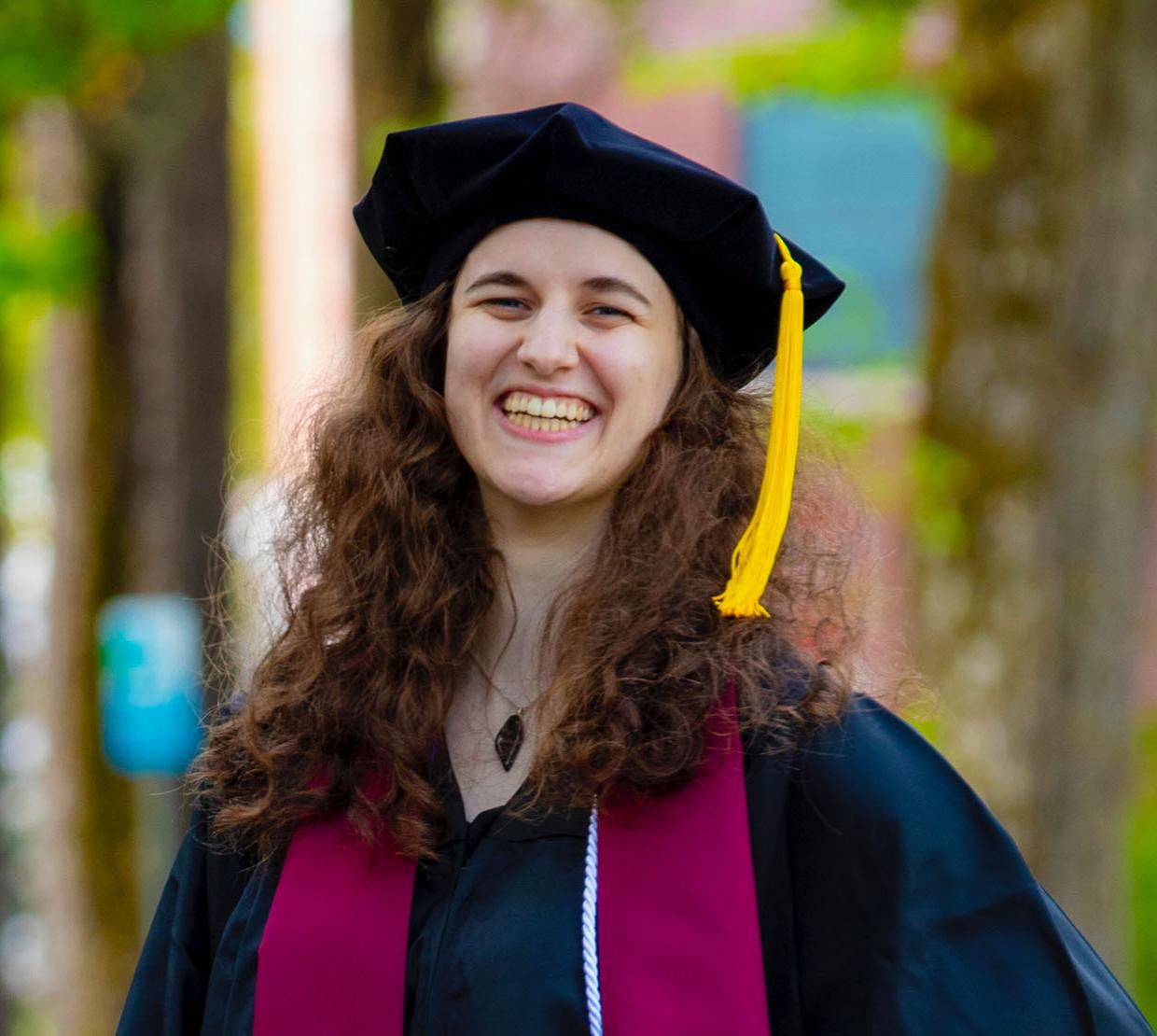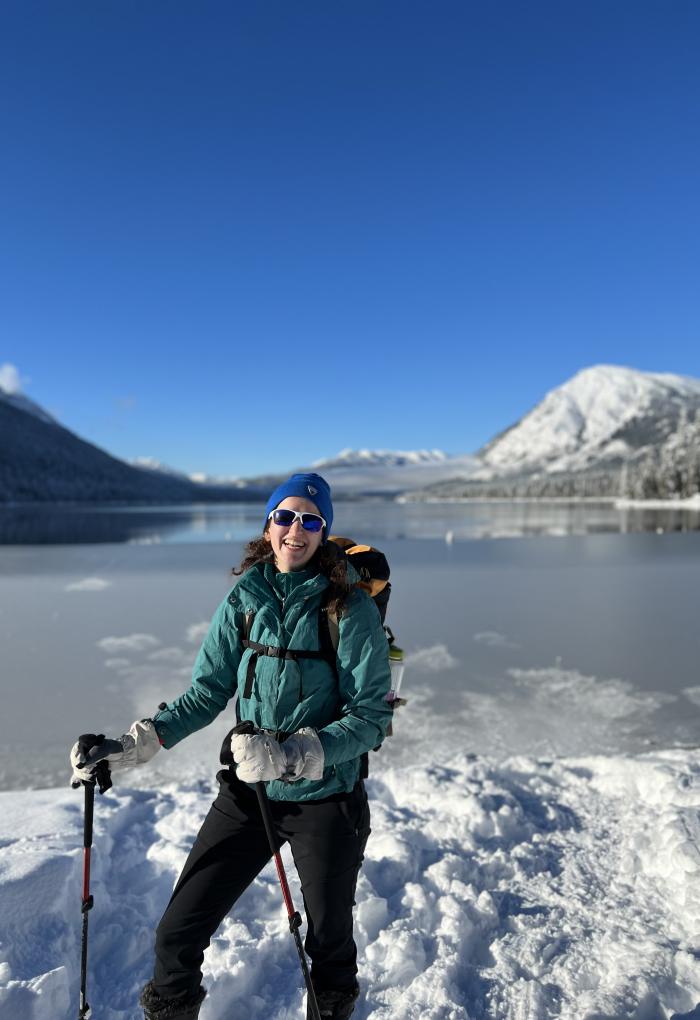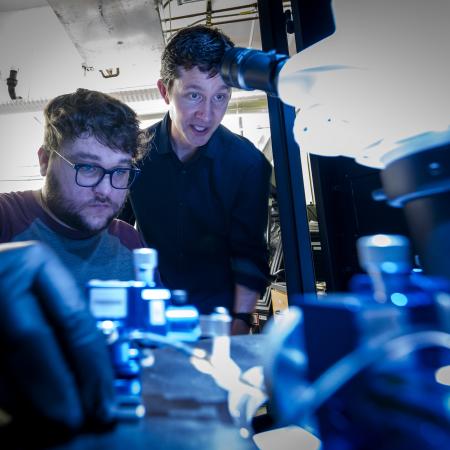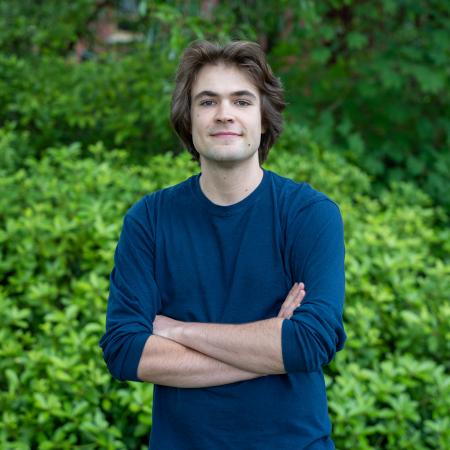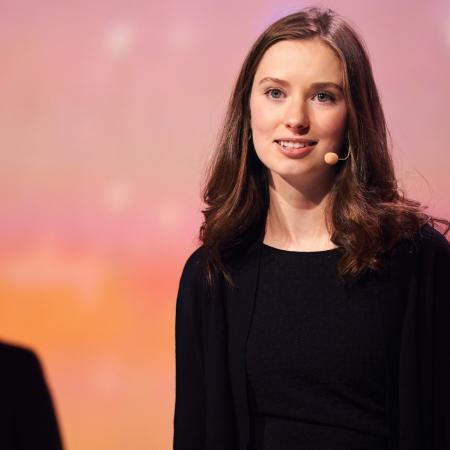Native to Edmonds, Washington, graduating senior Abbie Glickman has always loved math. “It’s kind of like solving puzzles; you get to test out different things and see how they work,” she said. But she credits her high school physics teacher for helping her see how she could apply mathematical concepts to understand the physical world around her. “When I took physics the first time, he made sure that I knew that I belonged in physics,” she said.
With her older brother studying psychology at Oregon State University, Glickman decided to apply as well. “Now I know that was definitely the right decision,” she said. “I was out of my comfort zone because I was so far away from home for the first time and learning to be an adult. But it is a very safe, comforting place where you know you’re going to have support systems.”
“I value the times where I’ve pushed myself to try something, even if I didn’t know it would work."
Majoring in Honor’s physics, she appreciated the unique structure of junior and senior undergraduate physics courses at Oregon State. For instance, Paradigms in Physics, the junior year course sequence, is a series of six five-week courses that ‘teaches physics as physicists think about it.’ “It’s pretty intensive, but the professors are phenomenal,” she said. “A lot of the professors are doing physics education research or just making sure that people feel included in science.”
Exploring diverse research interests
A member of OSU’s Women’s Rowing Team for three years, Glickman is most proud of the times she’s overcome mental barriers to seek out new opportunities. “I value the times where I’ve pushed myself to try something, even if I didn’t know it would work. Like applying for research – both of the times I went out and tried to do research it paid off in really amazing ways.”
All juniors in the physics major are expected to do a senior thesis research project, as are students in the Honor’s College. Understandably, most Honor’s physics students choose to combine these projects. But when the COVID pandemic began and her plans to study abroad were cancelled, instead of being discouraged, Glickman saw an opportunity to apply herself deeper into research.
“I really do feel like a physicist because of the classes I took and the things I did.”
A mathematics minor, Glickman received funding through the URSA Engage program to research math education under the supervision of Rebekah Elliott in the College of Education. She decided to extend her project to do an additional Honor’s thesis, developing her own theory about how the brain transitions between different subjects, such as math and computer science.
